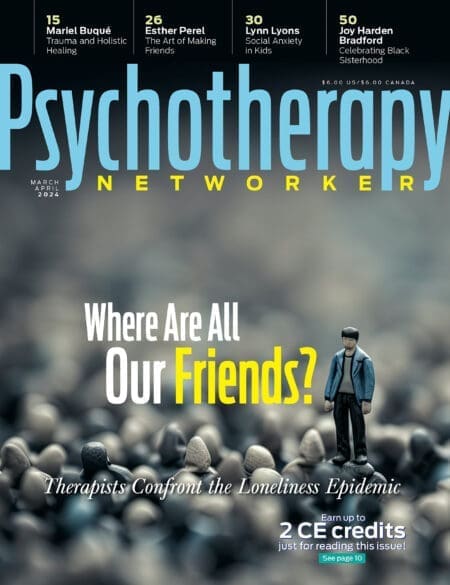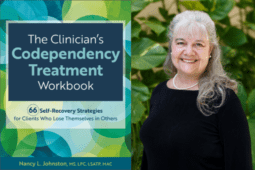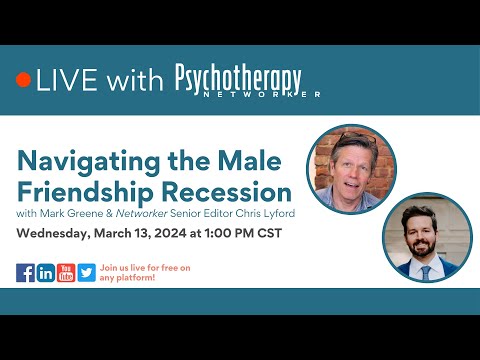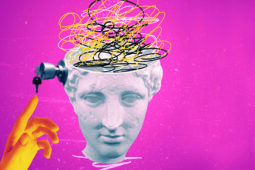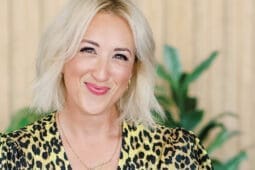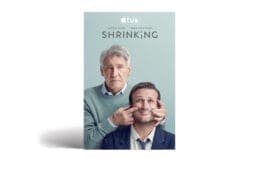Latest
Practice Tools: May/June 2024
The best from across the field of psychotherapy . . . on us!Download a worksheet from this month’s selection: Nancy Johnston's "The Clinician’s Codependency Treatment Workbook." Read more
Navigating the Male Friendship Recession
A Conversation with Mark GreeneWatch this interview with Mark Greene about why male friendships seem so difficult for men to get and how therapists can help. Read more
The Enduring Power of Bioenergetic Therapy
From Trauma to JoySometimes, transformational growth happens when we least expect it. Read more
Editor's Note: March/April 2024
The Loneliness EpidemicThis issue aims to explore what we can do about loneliness in our therapy offices—not just for kids and young adults, but for people at any stage of life Read more
A New Generation of Analysts
Why Depth Work Still WorksModern psychoanalysts are breaking free of old tropes, helping diverse clients and communities—and they still believe change takes time. Read more
A Therapy Session With Friends
An Untapped Resource for Emotional HealthThere are no formalized rituals, rules, or obligations to ground or support a friendship. Should therapists change that? Read more
Social Anxiety in Kids
How Our Good Intentions Make It WorseMaking accommodations for socially anxious kids can be easier than getting them off their phones and out of their rooms—but it’s also dangerous. Read more
Scarred, Not Scary
Bringing Disfigurement Out of the ShadowsTherapists can help disfigured clients build the necessary skills to navigate the documented reality that they’re often avoided, judged, and asked invasive... Read more
What Story Does Your Voice Tell?
Insights from a Speech CoachWhen we can explore our relationship to our own voice, we can harness one of the most direct paths to authenticity and connection. Read more
A Comedy about Breaking the Rules of Therapy
'Shrinking' is Sweet and Unrealistic—and That's OkayFor therapists, the TV comedy Shrinking is a low-impact escape that still contains echoes of the messy, wrenching work they do. Read more
